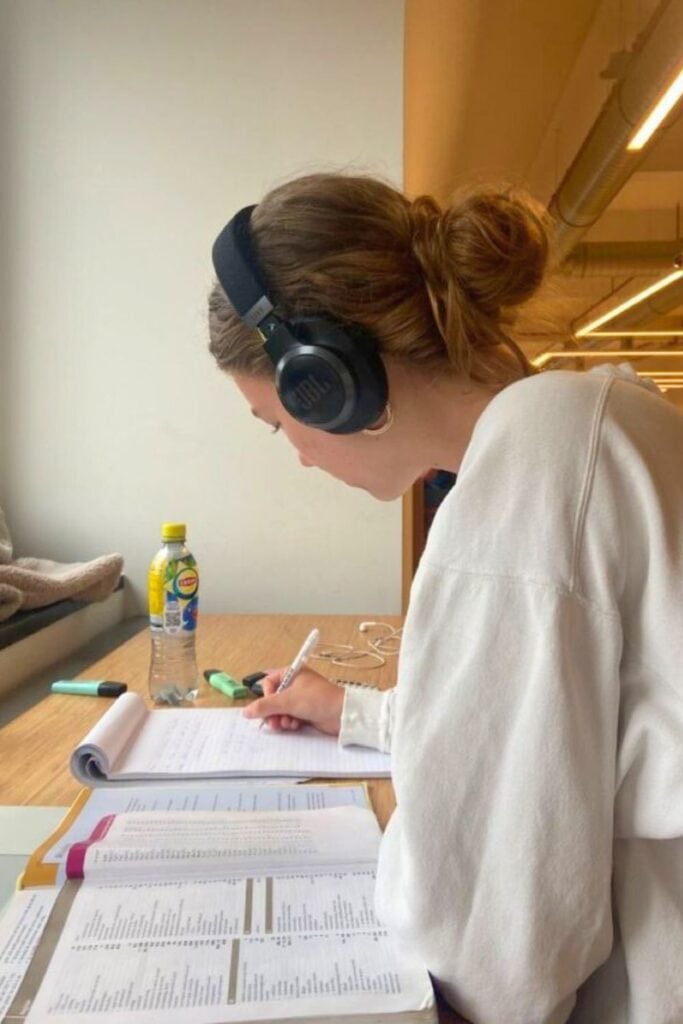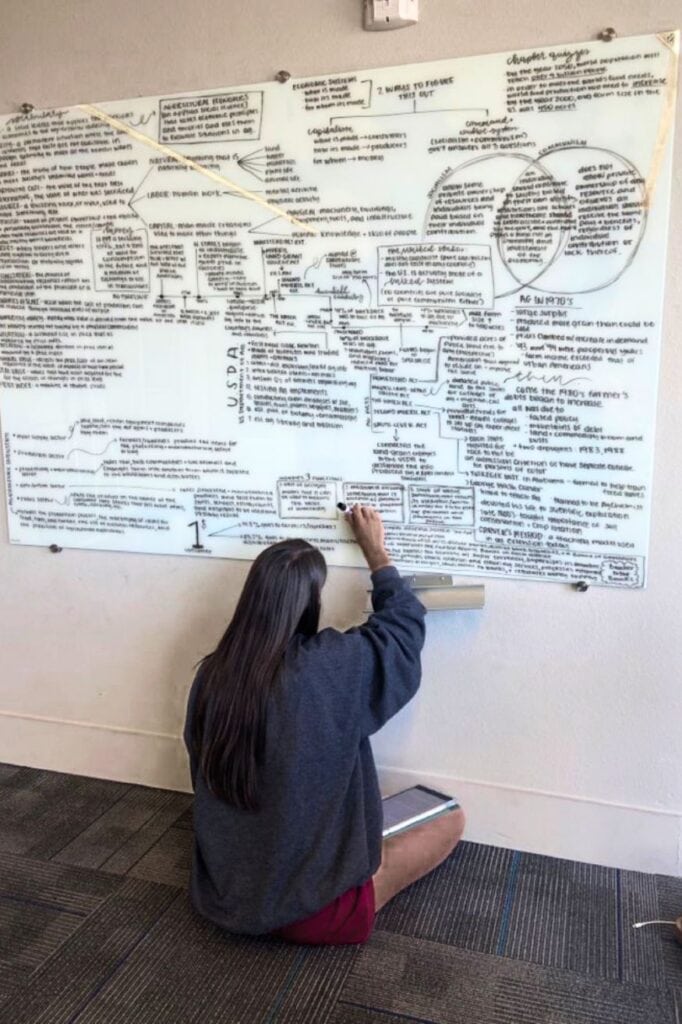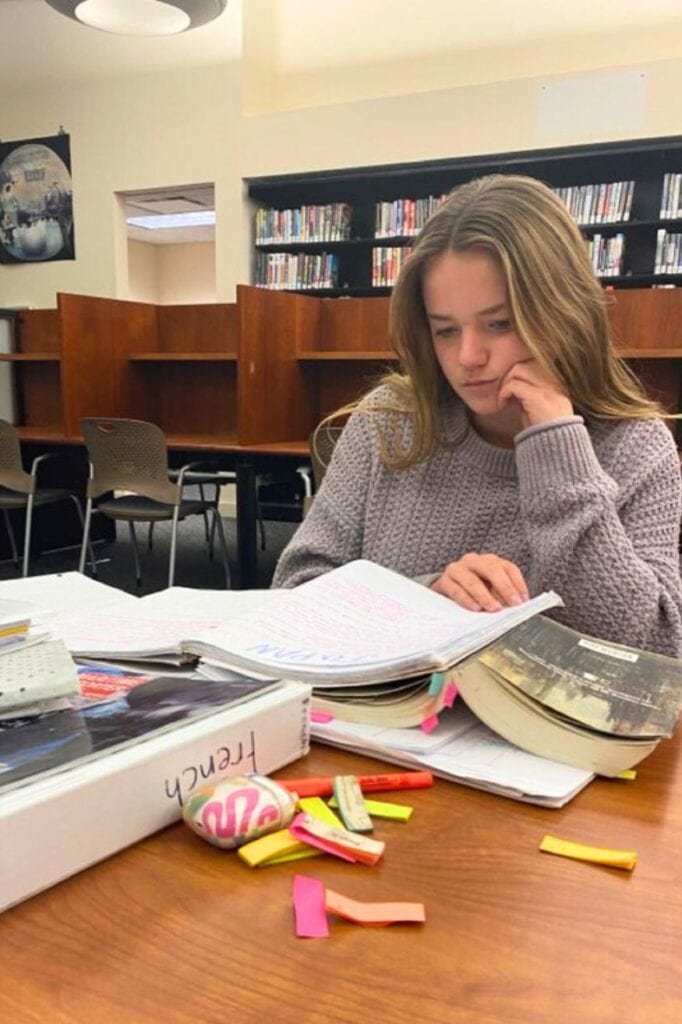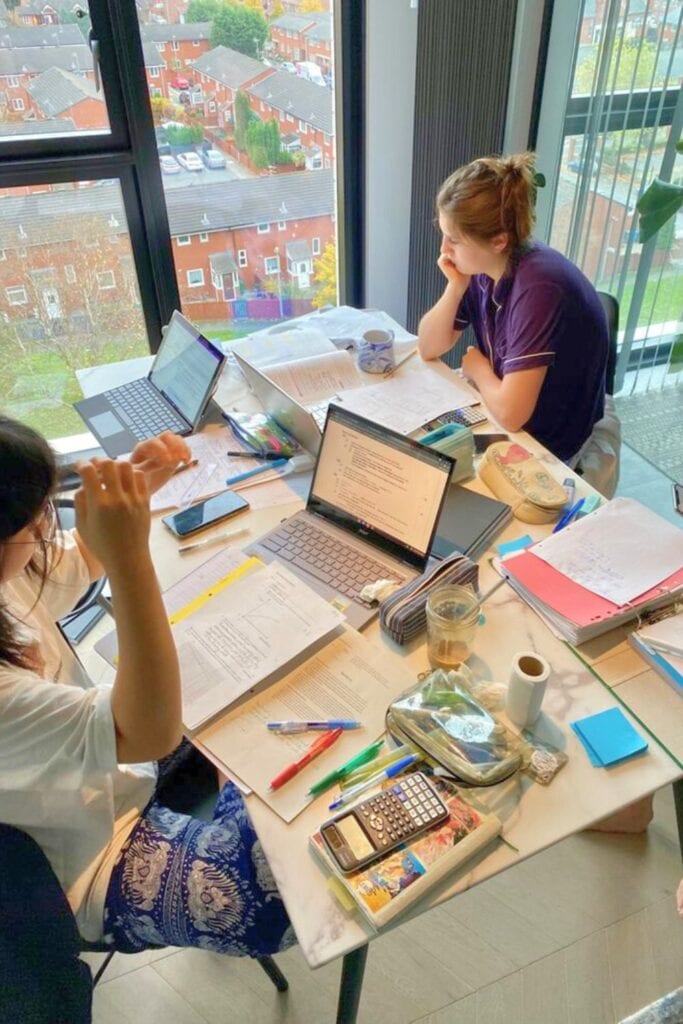12 Insanely Smart Study Hacks For College Students
Looking for ways to improve your memory and make studying easier? Here are 12 genius study hacks for college students that will change your life.
This post may contain affiliate links, which means I’ll receive a commission if you purchase through my link, at no extra cost to you. Learn more: Affiliate Disclaimer.

As you navigate the challenges of college, effective study habits are key to success.
But let’s face it, studying can sometimes feel like a drag.
To make your life easier, we’ve put together a list of 12 genius study hacks for college students that will get you through those long study sessions.
These aren’t your average tips; they’re tried-and-true strategies to make your study time more efficient, productive, and even enjoyable.
From time management techniques to memory tricks, these hacks will help you ace your studies and still have time for the fun parts of college.
Study Hacks For College Students
1. The Pomodoro Technique
The Pomodoro technique is one of the best ways to study or do work.
Set a timer for 25 minutes and dive into your work. When it dings, you’ve earned a five-minute break. Repeat four times, then take a longer break.
This study method is proven to boost focus and helps prevent study fatigue.
2. Study Before Bed
Hit the books before hitting the sack.
Some studies have shown that reviewing study material before bedtime can reinforce memory retention.
While you’re dreaming, brain has time to digest and focus on the information being studied overnight.
But when you study during the day, there are a large amount of interactions that can interrupt the digestion of the information.
Just make sure you’re not someone who gets overly stressed from studying. You don’t want to end up disrupting your sleep.
3. Block Distracting Apps
Digital temptations are so real.
It’s always a good idea to turn your phone on Do Not Disturb mode to silence notifications from texts and social media.
But if you still find yourself opening up distracting apps, it’s time to download app blockers. AppBlock lets you block access to specific apps and set up blocking schedules.
Set up these app blockers to work during your normal study hours. We promise your productivity will increase by a lot!
4. Learn by “Chunking”

One really smart study hack is to break down complex info into bite-size pieces, or “chunks”.
This way, you tackle one small section at a time, making overwhelming content more manageable.
For example, imagine you’re studying the human skeletal system. Instead of trying to memorize all 206 bones at once, divide them into sections: skull, spine, arms, and legs.
Focus on one section at a time, mastering the names and locations of those bones before moving on to the next ‘chunk.’
This makes the information more manageable and less intimidating, allowing your brain to form patterns and connections, enhancing recall and understanding.
This same technique can be applied to just about any subject you’ll study in college.
5. Study After Exercising
Exercising before studying isn’t just about staying fit; it’s about prepping your brain for learning.
Physical activity increases blood flow, delivering more oxygen and nutrients to your brain. This boost can enhance cognitive functions like memory, problem-solving, and attention.
Plus, exercise is a great stress-buster, helping clear your mind of distractions.
This means that your brain is in an optimal state for absorbing new information after you do a quick workout.
Make your study sessions more effective just by hitting the gym! How cool is that?
6. Listen to Recorded Lectures at 2x Speed
After attending your lectures, make it a habit to re-listen to them at double speed if there are recordings available.
This technique helps reinforce what you’ve already heard and allows you to cover more material in less time.
By speeding up the playback, you stay engaged and avoid zoning out, which can happen with slower, more familiar lectures.
It’s a time-efficient way to review material and solidify your understanding of the concepts discussed in class.
7. Reward Yourself
Incorporating a reward system into your study routine can significantly enhance your motivation and productivity.
For example, give yourself a small treat or a short break after completing a specific study goal, like finishing a chapter or solving a complex problem.
This approach not only breaks down your study sessions into achievable targets, but also provides a sense of accomplishment.
Just don’t choose rewards that disrupt your focus too much! You’re not going to get much done if you binge-watch a TV show every time you solve a math problem.
8. Chew Gum

Chewing gum during study sessions can be more beneficial than you might think.
Some studies have shown that the act of chewing gum can improve concentration and memory recall.
This could be due to increased blood flow to the brain or the rhythmic motion of chewing, which can help keep you alert and focused.
It’s a super easy way to give your brain a little extra boost during those long hours of studying.
9. Study With All of Your Lights On
A well-lit study environment can significantly impact your ability to concentrate and stay alert.
Natural light in particular is associated with improved energy levels and mood.
If natural light isn’t available, make sure you flick on all of the lights you have available. Ideally, you’ll have enough light to feel like daylight.
The idea is to create an environment that signals to your that brain it’s time to focus, mimicking the natural cues provided by daylight.
10. Study in Groups

Group study sessions can be more effective than solo ones.
If you’re studying the same information as the people around you, it can actually help deepen your understanding of the material.
You’ll be able to share your different perspectives, quiz each other on the material, and fill in gaps in each other’s knowledge.
Even if you’re not studying the same things as your friends, studying in groups still helps keep you accountable and on-task.
You’re less likely to slack off if everyone around you is focused.
Just make sure you keep these sessions focused and with like-minded peers so they don’t turn into distracting social gatherings.
11. Teach To Learn
Want to really get a grip on the material? Try teaching it.
Trying to teach someone else a subject forces you to organize and clarify your thoughts, ensuring a deeper understanding of the material.
This method also helps you realize areas you might not fully grasp yet, which helps you determine what to study next.
Teaching what you’ve learned is one of the most effective study hacks for college students.
12. Use Mnemonics
Mnemonics are memory aids that help you recall complex information through simple associations, like acronyms, rhymes, or visual imagery.
They transform hard-to-remember data into a format that’s easier to remember.
Mnemonics are particularly useful for memorizing lists, formulas, or specific terms.
An example of a mnemonic is “PEMDAS,” which is used in math to remember the order of operations: Parentheses, Exponents, Multiplication and Division, and Addition and Subtraction.
Mnemonics like this turn complex information into easy-to-remember phrases or sentences, making study more efficient and effective.
When you’re getting ready for your next study session, make sure you keep these study hacks for college students in mind.
Looking for more college tips? You may also like:





